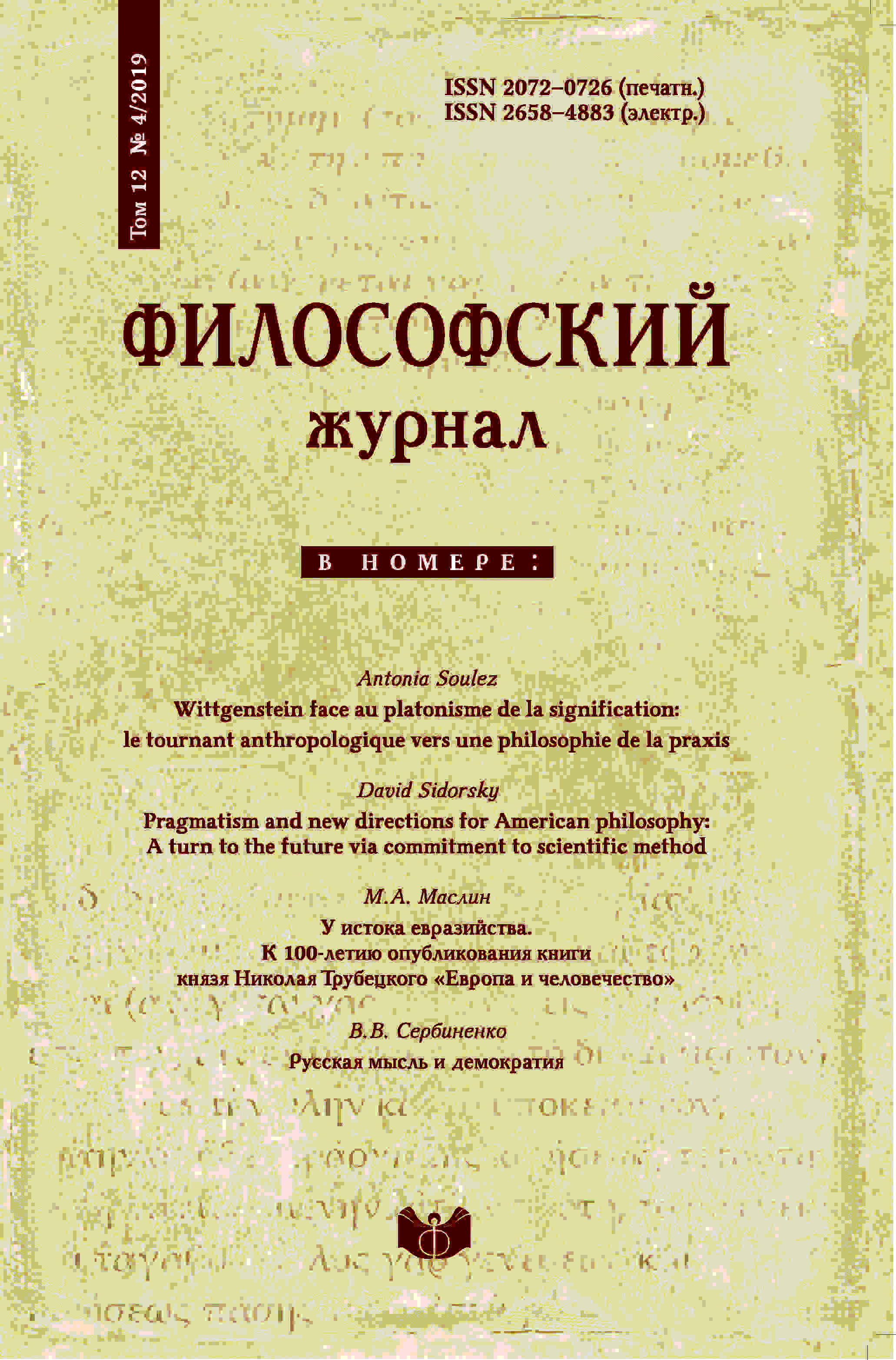The origins of Erasianism. A dedication to the 100th anniversary of the publication of Nikolai Trubetzkoy “Europe and Mankind”
DOI:
https://doi.org/10.21146/2072-0726-2019-12-4-161-178Keywords:
Russian culture, Slavic culture, Roman-Germanic culture, Eurasianism, “revolution of consciousness”, “defense of nationalism”, “true and false nationalism”Abstract
The article is devoted to the 100th anniversary of the publication of Nikolai Trubetzkoy’s “Europe and Mankind”, which marked the beginning to the Eurasianism as a postrevolutionary ideological movement. The book initiated a Russian intelligentsia tradition of editing a volume of collected philosophical papers and then further developing the ideas from the volume in journals and various public discussions (“Problems of Idealism”, 1902; “Vekhi”, 1909 etc.). The book “Europe and Mankind” is the first part of a trilogy contemplated by Trubetskoy before the Revolution: “On the True and False Nationalism” (the second part) and “The Highs and the Lows of the Russian culture”. The trilogy must be viewed as a unique whole united by the two central ideas: “revolution in consciousness” and “defense of nationalism”. A “revolution in consciousness” means a rejection of the Roman-Germanic culture as a universal model of all human culture; “defense of nationalism” means building a new type of nonethnical and nonpolitical nationalism based on the Eurasian cultural values. The general orientation of the conception of local civilizations with its general peculiarities based by Nikolay Danilevsky and prolonged by Oswald Spengler was not supported by Nikolai Trubetzkoy, who was closer to the cultural-philosophical universalism rather than to the particularism of the theory of cultural-historical types. Trubetzkoy interpreted peoples and cultures as “multipersonal individuals”. This is determined by the very nature of the process of producing cultural values because values are the products of creative personalities. According to Trubetzkoy, the reference group that included the Russian culture was not even Slavdom but the whole mankind. Russia itself must be evaluated as a model for mankind because of the multiplicity of cultural matrixes included in its ethnogeographic zones traditionally defined as “East”, “West”, “North” and “South”.






